“Uniting Faith and Science against Cervical Cancer.”
In a landmark gathering at the Radisson Blu Hotel, Nairobi, from June 11th to 13th, 2024, the African Jesuit AIDS Network (AJAN) under the Africa Economic and Health Transformation Initiative (AHETI) joined global leaders, health professionals, faith leaders, and policymakers united under the banner of “Uniting Faith and Science against Cervical Cancer.” The Nairobi Cervical Cancer Elimination and HPV Vaccination Convening aimed to galvanize efforts towards eliminating cervical cancer in Africa by 2030, aligning with WHO’s 90:70:90 targets.
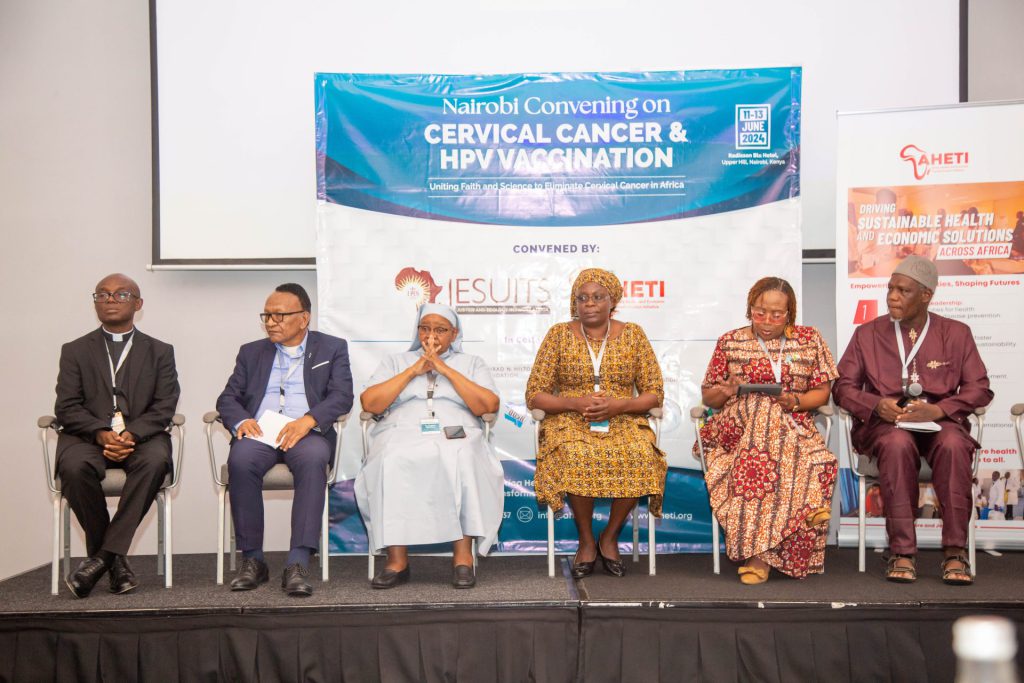
Cervical cancer poses a significant threat in Africa, with approximately 126,000 new cases and 81,000 deaths reported annually (Globocan). Recognizing the devastating impact on families and economies, participants highlighted the urgent need for comprehensive strategies for prevention, vaccination, screening, treatment, palliative care, and survivorship. Achieving this goal requires investment in innovative approaches, uniting Faith and science to Eradicate Cervical Cancer in Africa.
According to WHO, HPV prevalence is among the highest in sub-Saharan Africa (SSA), at an average of 24%, Globally, both men and women have a 50% risk of being infected at least once in their life. Just like gonorrhea, Syphilis, and Hepatitis B, Human Papillomavirus (HPV) is spread because of behavior. At the core of AJAN’s activity in ensuring that we are at the forefront of ensuring a healthier African generation is to enlighten the community about the need for self-discipline.
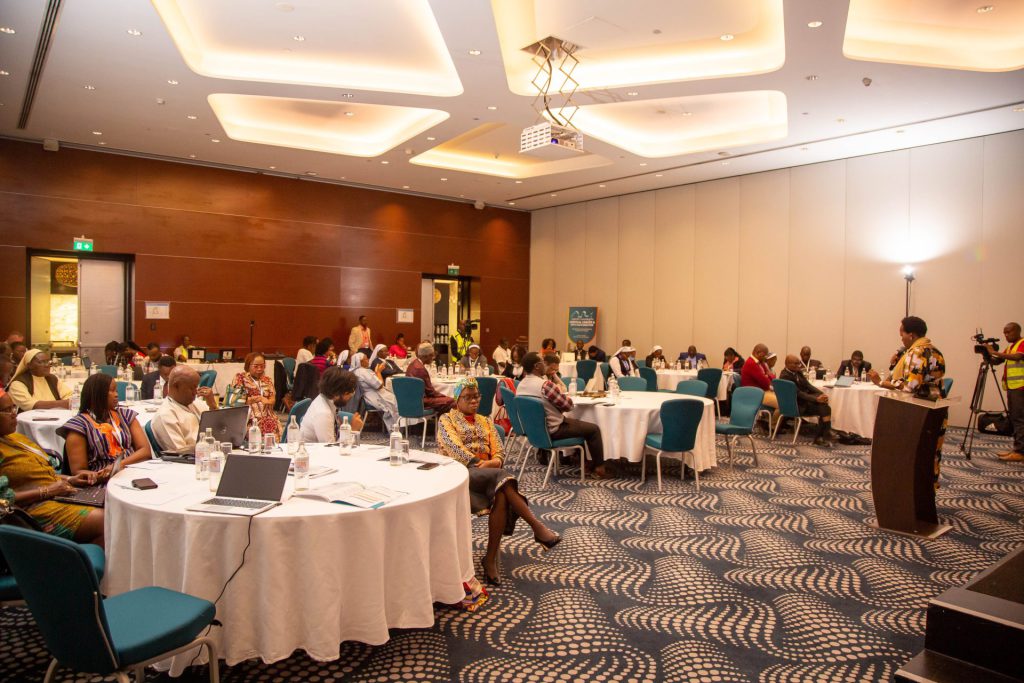
Key discussions emphasized overcoming cultural, logistical, and informational barriers that hinder access to crucial health services. The role of faith leaders emerged as pivotal in influencing health behaviors and decisions within communities, underscoring their potential to drive significant change.
Fr. Charles Chilufya, Executive Director & Board Chairman, Africa Health and Economic Transformation Initiative (AHETI) said, “the team is dedicated to supporting the implementation of a multifaceted approach in advocating for policy changes, raising awareness, offering psychosocial support and empowering communities in the prevention and control of cervical cancer in Africa towards achieving the WHO 90-70-90 targets an elimination strategy which is a comprehensive approach that targets 90% of the girls to be vaccinated by age 15, 70% of the women screened by ages 34 and 45, and 90 % of women with the cervical disease receiving treatment. Other key interventions he mentioned include supporting the implementation of behavior change communication, advocating for the HPV Vaccine and screening for the women, treatment, palliative care and survivorship.”
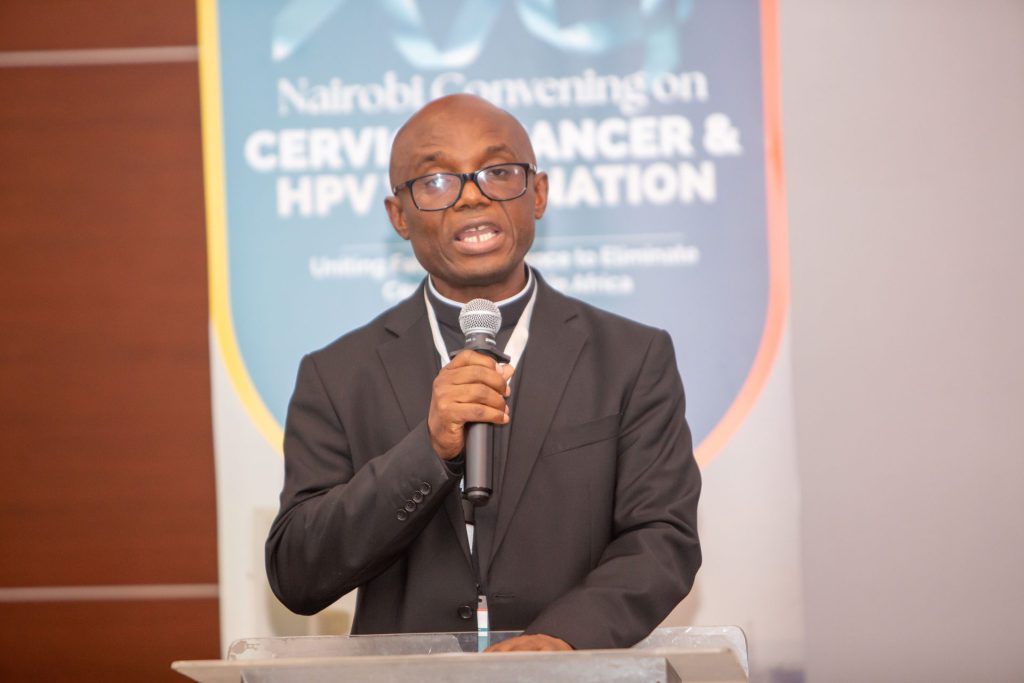
The convening celebrated collaboration among diverse stakeholders, including health advocates, policymakers, and community leaders, who committed to implementing multifaceted approaches across the lifespan. These efforts are crucial for achieving sustainable progress in the fight against cervical cancer in Africa.
With commitments made and partnerships forged, the Nairobi conference concluded on an optimistic note, setting the stage for accelerated action towards a cervical cancer-free Africa. As global momentum builds, the journey towards achieving the ambitious 2030 targets gains new traction, propelled by unified efforts and shared determination.
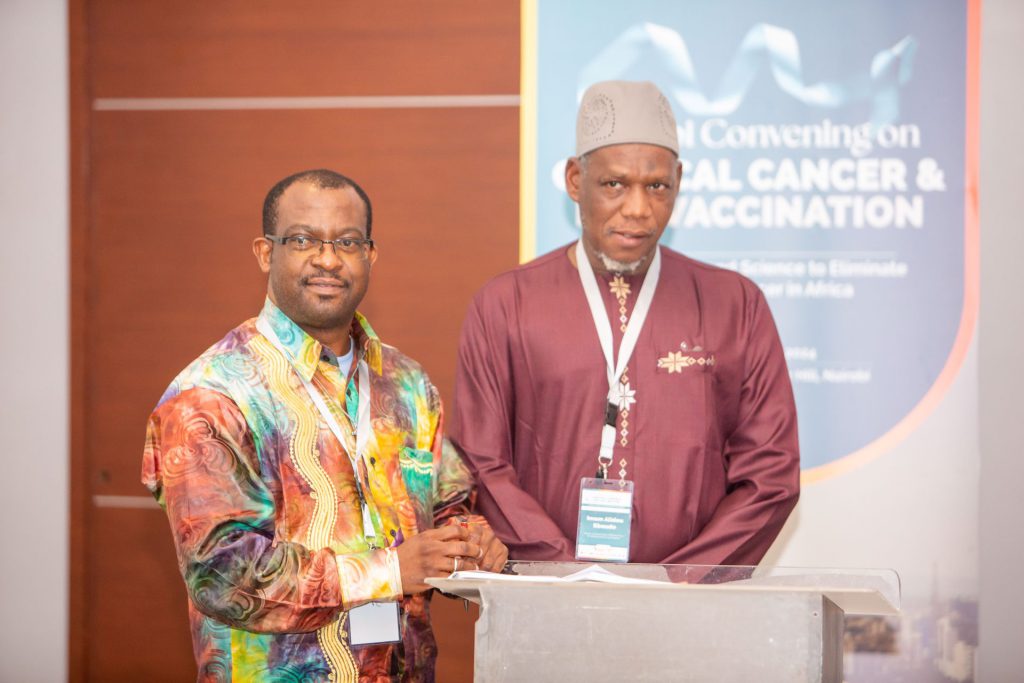
The following are key outcomes and commitments:
- Enhanced Collaborative Networks: Established new partnerships and strengthened existing ones among faith-based organizations, health authorities, advocacy and community groups to enhance the reach and effectiveness of cervical cancer prevention efforts.
- Capacity Building for Faith Leaders: Successfully conducted multiple sessions and workshops for faith leaders, equipping them with the necessary and relevant knowledge and resources to advocate effectively for behavioral change communication, HPV vaccination, HPV screening, treatment, palliative care and survivorship.
- Ramping Up Vaccination Efforts: A major focus of our convening was to leverage the resource of faith networks to significantly increase HPV vaccination rates. We are committed to expanding access to vaccines by enhancing public awareness to ensure widespread uptake.
- Expanded Screening Initiatives: We resolved to utilize the resources of faith networks and the influence of faith leaders to broaden behavioral change activities, screening initiatives across the continent, employing advanced diagnostic technologies and improving infrastructure to reach remote and underserved areas. Collaborative efforts with governments, national and international health organizations will help make screening a routine part of women’s healthcare.
- Strengthening service delivery and guidelines: Our discussions highlighted the urgent need to enhance access to treatment protocols for pre-cervical and cervical cancer. This includes upgrading the capabilities of local health facilities, offering continuous training to healthcare professionals, and ensuring the availability of essential medical supplies and equipment for effective treatment.
- Policy Engagement and Advocacy: We have proposed strategic discussions with policy makers to advocate for comprehensive cervical cancer care policies that support the implementation of advanced behavioral change communication, HPV vaccination, HPV screening, treatment, palliative care and survivorship in line with the WHO 90-70-90 targets.
- Integrated Sustainable Healthcare Models: We recommended sustainable and healthcare models that incorporate behavioral change communication, HPV vaccination, HPV screening, treatment, palliative care and survivorship into primary healthcare systems, ensuring lifelong access to these critical services for girls and women (as well as boys going forward).
- Community Engagement and Education: We are dedicated to engaging communities and increasing public awareness about the importance of behavioral change communication, HPV vaccination, HPV screening, treatment, palliative care and survivorship. We have developed and agreed upon a series of culturally sensitive advocacy strategies tailored to the unique needs and perspectives of various African communities, aiming to increase participation and vaccine and screening uptake. Educational programs and community workshops have been planned to dispel myths and stigma associated with cervical cancer.
- Monitoring and Evaluation: A framework for ongoing monitoring and evaluation has been established to assess the effectiveness of the strategies implemented for behavioral change communication, HPV vaccination, HPV screening, treatment, palliative care and survivorship. This will allow for continuous improvement based on real-time data and feedback from the participating regions.
- Resolution to Sustain Momentum: We resolved to maintain the momentum generated during this convening through regular follow-up meetings and communications among all stakeholders.
- As we move forward from this convening, we are energized and committed to continuing our efforts to combat cervical cancer through increased HPV vaccination rates, enhanced screening, robust treatment protocols and effective public health strategies. Together, we strive towards a future where cervical cancer no longer poses a significant threat to the health and well-being of women in Africa.
For more information about the Cervical Cancer & HPV Vaccination Convening, visit the AHETI website {Here}.
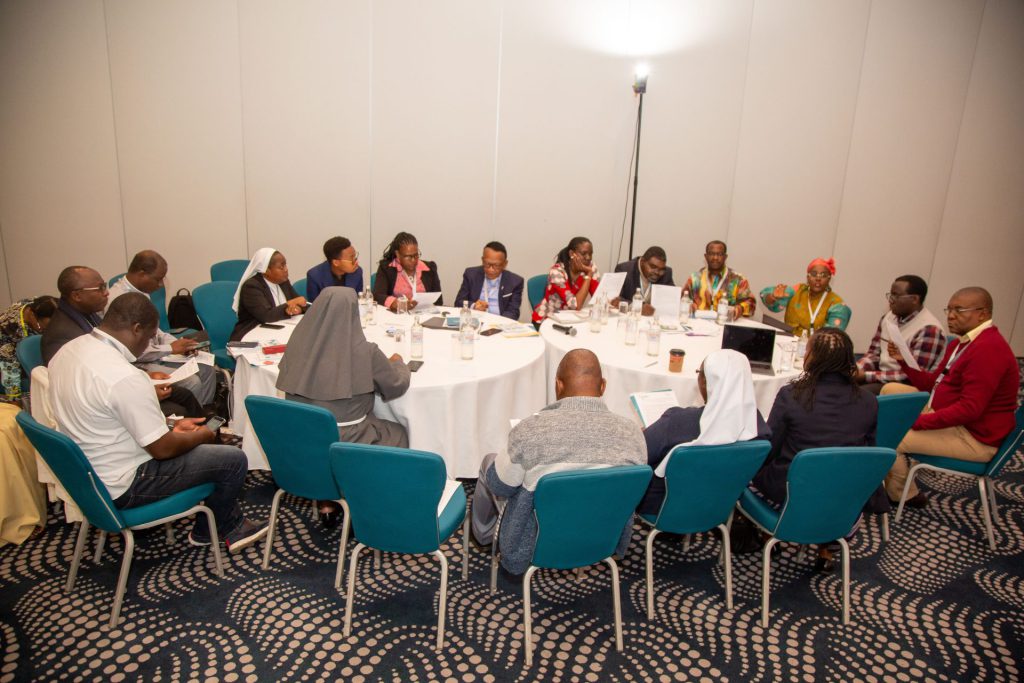
With a need to continue empowering the younger generation in Africa who according to the Youth Development are more than 400 million aged between the ages of 15 to 35 years. Such a youthful population calls for an increase in improved access to healthcare services, including mental health support and reproductive health education, which is vital for young people’s overall well-being. Addressing issues such as HIV/AIDS, substance abuse, and malnutrition is also important. Young People through the older generation need to be made aware that they are getting diseases such as HPV, HIV and STIs because of their sexual habits.
We believe through holistic and collaborative efforts, significant progress can be made towards eliminating cervical cancer and HPV. This multi-sectoral approach will ensure comprehensive, inclusive, and sustainable interventions.
_________________________________________________________________________________________________________________________________
AHETI is an initiative of the Jesuit Justice and Ecology Network Africa (JENA) and the African Jesuit AIDS Network (AJAN), in close collaboration with their partners, the Yale University Global Justice Program, the AU Development Agency – NEPAD, Incentives for Global Health (IGH), the Association of Sisterhoods of Kenya (AOSK), Association of Religious of Uganda (ARU), Conference of Major Superiors Religious of Ghana (CMSRG) and the Zambia Association of Sisterhoods (ZAS).
By, Dennis Owuoche
AJAN Communications Officer.

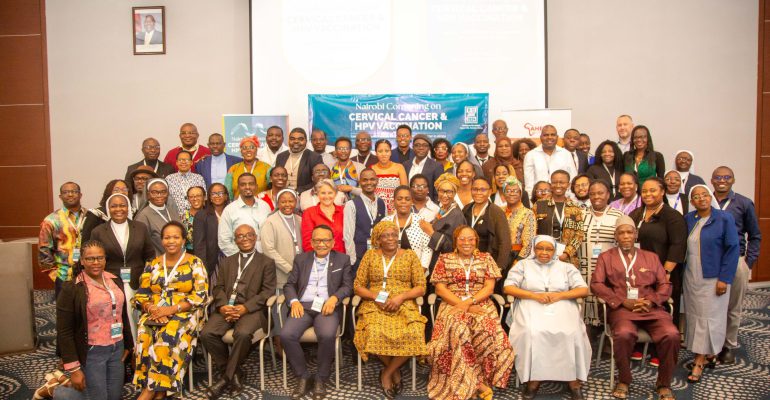
Comments are closed.